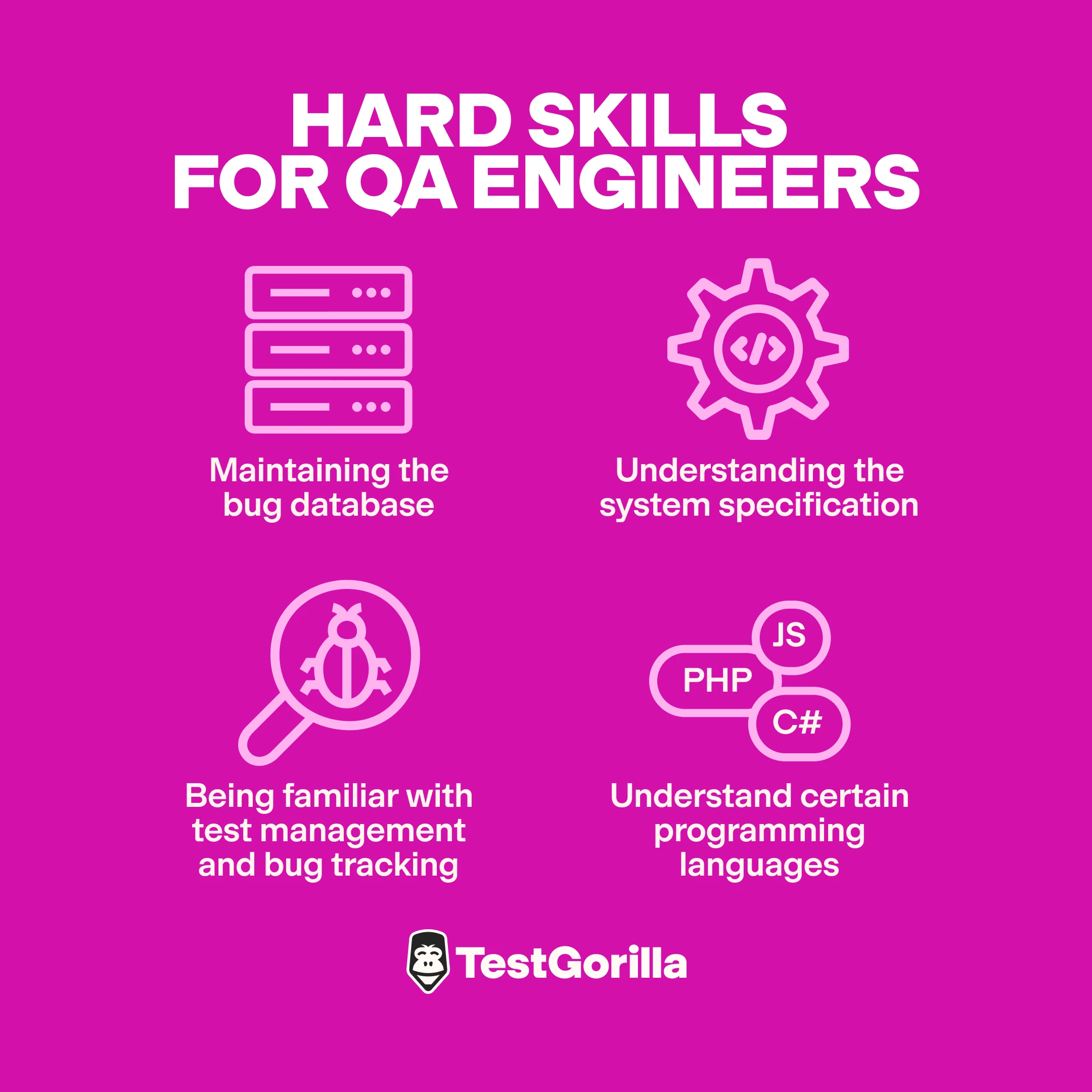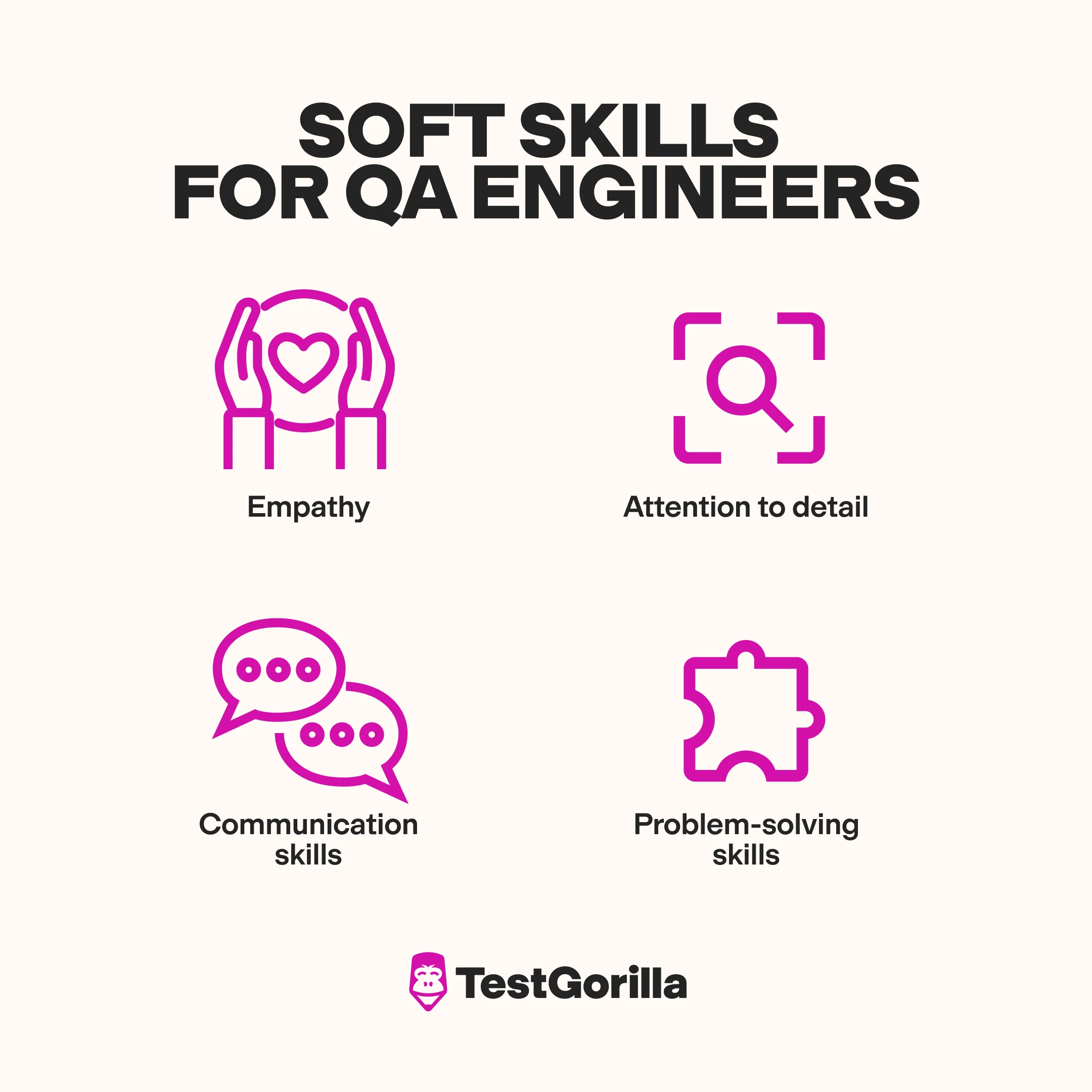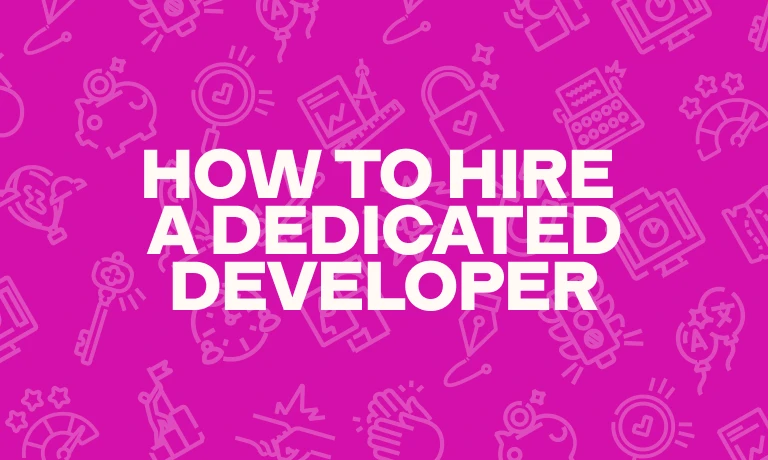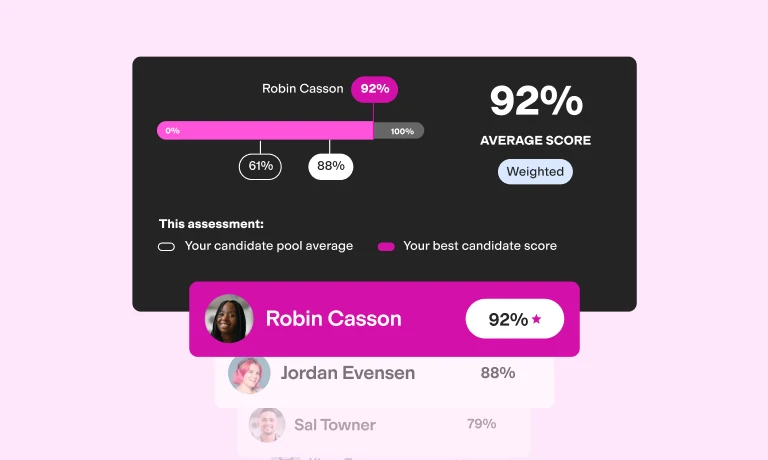The intricacies of building and releasing a web application can make a project seem tricky and complex. It’s not easy to produce exceptional applications, and many things can stand in the way of satisfied customers. But this is where hiring a top QA engineer can help.
Despite the difficulties you might encounter as a non-technical recruiter when hiring a QA engineer, knowing which skills are required to achieve excellence can make a big difference to the quality of your hire.
So, this article contains eight essential hard and soft skills that you should be looking for in a QA engineer.
What does a QA tester do?
A QA engineer, QA tester, or analyst for software quality assurance is responsible for analyzing and examining any applications that have been modified and ensuring that they function the way they are supposed to.
Therefore, a QA engineer’s role focuses on eliminating potential issues to deliver exceptional software and applications that are bug- and glitch-free and that offer the perfect user experience.
Their responsibilities also include design phase monitoring and enhancing the development process by discovering problems with the software applications before they escalate. They must also act as intermediaries between the developer team members, clients, and QA team members.
In summary, some of the specific duties that QA testers must carry out include:
Test progress documentation
Risk calculation
Coding specifically to develop automated tests
Spotting glitches and bugs in the software
Carrying out manual testing
Setting standards for the quality of software and apps
What makes a good QA engineer?
In the following sections, we cover some particular skills that can help QA engineers to perform their work effectively. But before we get to that, you should know that it’s also important for candidates to have a combination of the right experience, soft skills, hard skills, and knowledge to share within their own QA team and the development team.
Another sign that a QA engineer is good at their job is if they have the ability to compromise and accept a software application that might not be perfect but functions well overall.
A QA engineer who can adapt the testing process they use for different variations of products while also striving for quality in every product release is someone who likely has the right skills to be a successful QA engineer.
The best insights on HR and recruitment, delivered to your inbox.
Biweekly updates. No spam. Unsubscribe any time.
What skills are necessary for software testers?
But software testers and QA engineers require many additional skills to carry out their role successfully, deliver exceptional software applications, and facilitate the roles of the developers within their organization.
Here are some of the key hard and soft skills you should look for in a QA engineer.
Hard skills for QA engineers
Some of the critical hard skills that a QA engineer needs to perform well include maintaining the bug database, understanding the systems, being familiar with tools for test management and tracking bugs, and understanding certain programming languages.
1. Maintaining the bug database
Since the bug database denotes the state the product is in, top QA engineers must be able to maintain it. This means they must also stay aware of how shipping a product with bugs will impact the customer.
If a QA engineer ships a product with bugs, they should make this decision after considering the risks involved and acknowledging that they aren’t unmanageable.
2. Understanding the systems’ specifications
Because specifications represent the many systems involved in the development process, a QA engineer should consider the reality of each use case and understand the systems’ specifications.
3. Being familiar with tools for test management and bug tracking
One process that’s vital in a QA engineer’s role is bug tracking. Therefore, having the right tools for bug tracking and test management is crucial. Some of the essential tools that a QA engineer candidate might be familiar with include the web-based tool BugHerd, Mantis Bug Tracker, Asana, Marker.io, and Stryka.
There are also many test management tools that a QA engineer might recognize, including TestRail, TestFLO for Jira, Jira, QAComplete, and VersionOne.
However, since bug tracking and test management tools are constantly being developed, QA engineers must recognize which ones are high quality and understand which of them are ideal for their particular project.
4. Understanding certain programming languages
Since test automation is a crucial part of QA testing, QA engineers must understand certain programming languages to perform their roles effectively. They will need to carry out UI (user interface) test automation using programming languages such as Java, Python, C#, or Ruby.
Soft skills for QA engineers
Some of the essential soft skills required for a QA engineer to succeed in the role include empathy, attention to detail, good communication skills, and problem-solving skills.
1. Empathy
QA engineers must understand other developers, clients, and QA testers and view a challenge from their perspective to solve issues. A QA engineer who can empathize and really understand what a client values can go a long way to producing a successful end product.
Understanding the client’s priorities is an essential part of showing empathy. To do this, QA engineers must be able to ask questions (and the right ones) to learn what is important from their perspective.
2. Attention to detail
Much of the development of web applications takes place in an “invisible” realm. The code represents the application, but it is intangible. Therefore, QA engineers should be able to spot minor details and imperfections in the code and the systems, as well as the details that contribute to a top application.
It’s important that the QA engineer you hire can check and double-check defect-prone areas of the system and anticipate any flaws in the pipeline.
3. Communication skills
As QA engineers must liaise with clients, other QA engineers, and developers, effective communication is vital. Expressing ideas and concepts is clearly important in this sense, but can your candidate do this in both written and spoken communication?
Communicating well also involves active listening, so ensure that your candidates can be active listeners when communicating with team members and clients.
4. Problem-solving skills
The technically intricate QA engineer role also involves solving complex technical problems. Yes, QA engineers will have to solve software testing challenges, but they will also have to manage issues.
Every time a new issue arises, a unique, smart, and efficient approach will be required to solve it. This is what you will need to look for in a QA engineer — the ability to develop unique solutions to technically intricate issues and problems.
How to use TestGorilla to hire top QA engineers
Since you must look for the quality assurance skills listed in this article to find a top QA engineer, nothing is more helpful than a reliable skills testing platform, like TestGorilla and its QA/Test Engineer skills test for hiring the right QA engineer for your organization.
The QA/Test Engineer skills test is ideal for discovering if your candidates can fully understand and use the right tools and methods for test execution, manage projects efficiently, use their knowledge to support development teams, and communicate well. It is a bias-free approach to assessing candidates and learning whether their skill level suits your team.
Using a skills assessment to hire QA engineers
With TestGorilla, you can select a skills assessment, which is a pack of skills tests that you can use to assess your QA engineer candidates. We recommend the QA/Test Engineer skills test and a few soft skills tests, such as the Communication test and Attention to Detail test.
Always use skills assessments immediately after you have sourced candidates. Waiting until after the interview stage can prolong the hiring process and lead to a longer time to hire. And since skills assessments can help you create interview questions, it’s better to use them before the interview.
Make comparisons between candidates, and filter out unqualified applicants
Once you have the results, you can make comparisons between candidates and filter out those who don’t meet the requirements of your role. For instance, if one of your QA engineer candidates doesn’t understand what is meant by “bug severity,” and this is crucial knowledge for your role, you might filter them out of the hiring process.
Hire QA engineer candidates and make a bias-free decision with TestGorilla
Hiring top QA engineer candidates and mitigating bias is easy with skills assessments. To make the best decision, the top skills testing platform you should consider is TestGorilla!
We know that a good hire can make a significant difference to your organization. That’s why we make improvements to our tests and are constantly enhancing their quality to guarantee you a smooth hiring process.
Combine our QA/Test Engineer skills test with our many soft skills tests to get a better picture of your candidates’ abilities, and hire the right QA engineer for your team without bias or difficulties. Try TestGorilla for free.
You've scrolled this far
Why not try TestGorilla for free, and see what happens when you put skills first.




















